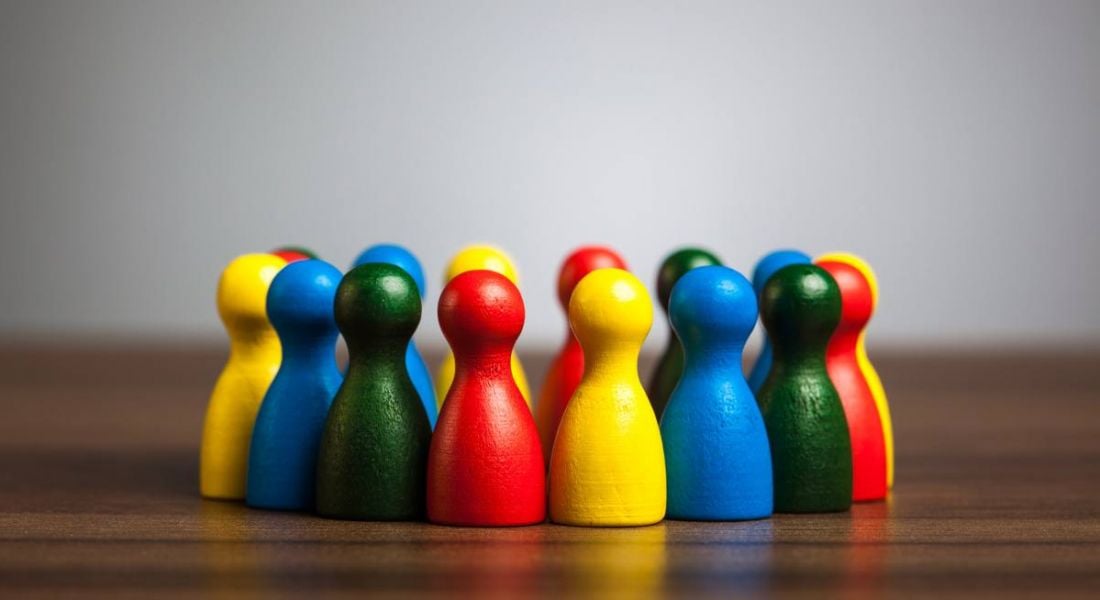Avanade Ireland’s Colin O’Brien outlines how businesses can build sustainable and successful diversity and inclusion initiatives.
Avanade Ireland’s financial services lead, Colin O’Brien, spent 18 years working in financial services before moving to technology consulting. Beyond his current work with Avanade stakeholders to help them rethink their business strategies, he is also the company’s inclusion and diversity lead for Ireland and a member of its European inclusion and diversity council.
Improving diversity and inclusion efforts is a “personal passion”, O’Brien says. He grew up in a part of Dublin where as many as 90pc of his primary-school classmates never made it to college because of a lack of opportunities.
“As someone who was also adopted as a baby, I experienced first-hand the passion my mother and, subsequently, my birth mother had to ensure that I could have opportunities to be who I wanted to be,” he says.
“But I was also very lucky as, despite the challenges from being from a disadvantaged area where those opportunities were few and far between, I was also male and white. The reality is that I’m part of the problem and I believe I have a responsibility to ensure others have the same opportunities I have, regardless of characteristics or backgrounds.”
How to build a robust diversity and inclusion programme
Something companies need to remember, O’Brien says, is that “there is a human and business benefit to establishing a robust diversity and inclusion programme”. He outlines three areas worth considering: sustainability, measuring impact, and respecting achievements and progress.
“Every organisation will have individuals who have a passion for initiatives that would form an effective diversity and inclusion programme, which include BAME [black, Asian and minority ethnic], LGBTQ+, gender parity and disability.
“By building a wide network and programme of initiatives, companies can deliver a sustainable I&D programme that becomes part of the day-to-day fabric of culture and processes. It’s critical that those programmes have appropriate funding, resources, leadership buy-in and accountability to be impactful.”
My last normal photo was our fantastic IWD event with an amazing panel #LastNormalPhoto #Avanadeireland pic.twitter.com/j3Nj8Yir46
— Colin O Brien (@Colin0Brien1) May 16, 2020
After that, setting “clear and challenging goals” is a vital part of achieving your desired impact, according to O’Brien. This can include implementing yearly targets and evaluating progress.
“What has been eye opening for me over the past few months is how people have gone above and beyond to support others through this recent crisis,” he says. “In Avanade, every person receives one day where they can volunteer their time for community and other initiatives. When the pandemic hit, the one-day limit was uncapped, and I have seen so many stories of individuals supporting their local communities.
“This has ranged from people buying groceries for the most vulnerable in our communities to helping organisations like Junior Achievement and schools to continue to offer learning programmes remotely.
“Much of this work happens quietly in the background. A positive, inclusive and diverse culture can be established by communicating these stories, by celebrating and respecting their impact and recognising those who are leading them. These stories will inspire others to do the same.”
Diversity and inclusion can’t just be an ‘afterthought’
How can companies show solidarity with global issues of injustice and inequality? O’Brien shares an example.
“In recent months, we have seen the horrific killings of George Floyd, Breonna Taylor and too many others, which has given rise to the Black Lives Matter movement,” he says. “During this period, our CEO, Pam Maynard, gave our global organisation the afternoon off to reflect on how each one of us can make a difference.
“Inclusion and diversity are about ensuring that everyone has the same opportunities to be the best they can be without fear about being discriminated against because of their race, gender, disability, age or sexual orientation.”
Covid-19 has also upended working life for many in recent months. Moving work to the kitchen table and trying to regain some semblance of work-life balance has been hard for many, O’Brien says, particularly in terms of mental health and wellbeing.
“Sadly, some businesses have taken severe hits and the tendency could be that companies invest less resources in their inclusion and diversity strategies and programmes,” he explains. “As companies rethink and renew their business, inclusion and diversity should be front and centre of that planning, rather than an afterthought.
“Considering the global pandemic and racial inequalities we have seen more recently, the case for inclusion and diversity is stronger than ever. Recovery will be achieved through attracting, hiring and retaining a diverse, inclusive workforce.”
Next steps for success
O’Brien’s advice for businesses considering their next steps for diversity and inclusion has three elements. Firstly, diversity and inclusion shouldn’t be left solely to HR, he says. “Certainly, HR has a key role to play, but it’s critical that all parts and all levels of your company take a lead role in driving the change you wish to achieve.”
The second element is patience. While it’s important to keep your foot on the gas, O’Brien says, you must also remember that “change doesn’t happen overnight, particularly if you are looking to establish a sustainable programme”.
‘As companies rethink and renew their business, inclusion and diversity should be front and centre of that planning rather than an afterthought’
– COLIN O’BRIEN
“Programmes fail if you try to boil the ocean and do everything at the same time,” he says. “Consider what the priorities of your business are, listen to your employees about their priorities and create a programme that can deliver sustainable change through behavioural and cultural change. We monitor, review and renew our goals every six months to ensure we are continually pressing for progress.”
Finally, O’Brien acknowledges that it can be difficult to know where to start with diversity programmes. His advice? “Start somewhere,” he says. “There is no perfect recipe to achieving success and each company needs to consider their priorities, maturity levels and culture when assessing next steps.
“There are so many people who have inspired me and one I’ve been lucky to meet is the amazing Sinéad Burke who has recently written a book [Break the Mould] for children, but with a lesson for all of us: ‘There are so many people in this world, but there is only one of me and one of you. It’s easy to think we are not good enough, or that our nose is too big, or wish we could be more like our friends. But the world would be different without you. You are enough, just as you are’.”




